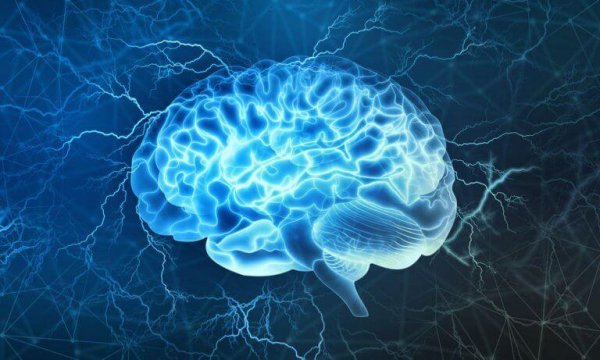10 Benefits of Listening to Relaxing Music


Written and verified by the psychologist Valeria Sabater
Maybe you have your own playlist of relaxing music. You turn it on when you need to calm your mind. Music can make us feel so wonderfully peaceful. It produces serotonin to relieve our stress and relieve physical pain. It’s always there for us.
And it’s not a coincidence. Music has a huge impact on our brain, and relaxing music does actually make us feel better. For example, there is a well-known theory — though it’s not yet empirically proven — about the good that a frequency of 528 Hz can do to our body.
It’s called the Solfeggio frequency, originally used in Gregorian chants. Whether it’s healing or not, what we do know is that music is capable of making changes in our mind and body. Let’s take a look at relaxing music and the mind.

The benefits of relaxing music
Every three months, the APA (American Psychological Association) publishes a musicology journal with studies on the topic. Many experiments, research studies, and theoretical work has proven things that we had already intuited: music, especially relaxing music, has great cognitive, emotional and neurobiological benefits.
Let’s look at some of these positive characteristics:
1. It reduces stress
If we search “relaxing music”, we’ll get thousands of results. However, does relaxing music actually relieve stress? The answer is yes. In fact, a few years ago, scientists from Mindlab, which specializes in neuroscience experiments, came to an interesting conclusion.
They said the song “Weightless” is the most effective at calming heart rate, respiration and brain activity. “Weightless” is a song by the British band Marconi Union.
2. The sounds of nature improve our concentration
The sound of rain rattling on a window, a flowing river, the tireless crashing of the ocean against a reef, a whale’s song… The sounds of nature have a certain cathartic effect in our body. It is like we go back to where we came from. It focuses us and liberates us at the same time.
Recently the BirdLife Focus Natura project actually showed that relaxing music with nature and animal sounds improves concentration and performance in children with ADHD.
3. It reduces a person’s perception of pain
Listening to relaxing music after surgery improves patient recovery. It also makes this critical time a bit more pleasant and less stressful. It’s a remarkable finding, but an article in Psychology Today explains that relaxing music lessens a person’s sensation of pain, produces endorphins, and even strengthens our immune system.

4. It helps us sleep better at night
We’ve all done it before. We lie down in bed, turn off the lights and immerse ourselves into the peaceful, warm, wonderful world of music. Listening to relaxing music through headphones at night helps us sleep better. It helps us release our worries and those exhausting thoughts that often feed anxiety.
5. It improves brain functioning
Our brain is passionate about music. We know, for example, that playing an instrument starting early on helps our brain develop and even improves mathematical performance. Relaxing music is almost like a vitamin for our neurons.
It puts us in an optimal mental state for reasoning and tasks involving our spatial–temporal abilities. At the same time the connection between our two brain hemispheres improves, fostering faster communication between neurons.

6. Your heart also appreciates relaxing music
We talked before about the benefits of listening to relaxing music after surgery. One reason is that it is good for our heart. It lowers our blood pressure and heart rate. Our heartbeat becomes more regular and rhythmic, we have fewer arrhythmias, and we feel calmer.
7. More serotonin and endorphin
Two hormones we really like are endorphins and serotonin. They also act as neurotransmitters. Although each of us has our own musical tastes, and sometimes we’re in the mood for more energetic songs, we can’t ignore the benefits that relaxing music has on the brain.
Melodic harmonies, perfect frequencies, and nature sounds trigger the release of serotonin and endorphin. So find some time in your day to give yourself a dose of musical happiness.
“Since man came to be there is music; but animals, atoms, and stars also create music”.
-Karlheinz Stockhausen-
8. It helps us eat more attentively
This one may surprise you. Something as simple as listening to relaxing music while we eat can help us eat in a more conscious, balanced and healthy way. It has a lot to do with mindfulness. It helps us eat more slowly and thus recognize sooner when we’re full. We taste food more intensely and savor the sensations of eating.
9. It will help you meditate
Learning to meditate is not easy, especially if your life is nonstop busy. Sometimes when we try to find some relaxation by meditating, it doesn’t work. One thing that can help is relaxing music. Just find a quiet space, put on some comfortable clothes and some headphones, and let yourself go…
10. Relaxing music for studying
Relaxing music optimizes our cognitive processes. We concentrate and process information better, and retain new information more quickly and efficiently. As we said, our brain loves balanced, harmonic musical stimulation. There are actually frequencies that can help our brain work better.
Try it! Take advantage of the magic of relaxing music the next time you take an exam. Another interesting fact that experts in music psychology tell us is that all it takes is 10 or 15 minutes listening to relaxing music every day for a few weeks to see benefits.
You’ll feel an inner calm, manage stress better, and have more focus. Need any more reasons to start listening to relaxing music?
Maybe you have your own playlist of relaxing music. You turn it on when you need to calm your mind. Music can make us feel so wonderfully peaceful. It produces serotonin to relieve our stress and relieve physical pain. It’s always there for us.
And it’s not a coincidence. Music has a huge impact on our brain, and relaxing music does actually make us feel better. For example, there is a well-known theory — though it’s not yet empirically proven — about the good that a frequency of 528 Hz can do to our body.
It’s called the Solfeggio frequency, originally used in Gregorian chants. Whether it’s healing or not, what we do know is that music is capable of making changes in our mind and body. Let’s take a look at relaxing music and the mind.

The benefits of relaxing music
Every three months, the APA (American Psychological Association) publishes a musicology journal with studies on the topic. Many experiments, research studies, and theoretical work has proven things that we had already intuited: music, especially relaxing music, has great cognitive, emotional and neurobiological benefits.
Let’s look at some of these positive characteristics:
1. It reduces stress
If we search “relaxing music”, we’ll get thousands of results. However, does relaxing music actually relieve stress? The answer is yes. In fact, a few years ago, scientists from Mindlab, which specializes in neuroscience experiments, came to an interesting conclusion.
They said the song “Weightless” is the most effective at calming heart rate, respiration and brain activity. “Weightless” is a song by the British band Marconi Union.
2. The sounds of nature improve our concentration
The sound of rain rattling on a window, a flowing river, the tireless crashing of the ocean against a reef, a whale’s song… The sounds of nature have a certain cathartic effect in our body. It is like we go back to where we came from. It focuses us and liberates us at the same time.
Recently the BirdLife Focus Natura project actually showed that relaxing music with nature and animal sounds improves concentration and performance in children with ADHD.
3. It reduces a person’s perception of pain
Listening to relaxing music after surgery improves patient recovery. It also makes this critical time a bit more pleasant and less stressful. It’s a remarkable finding, but an article in Psychology Today explains that relaxing music lessens a person’s sensation of pain, produces endorphins, and even strengthens our immune system.

4. It helps us sleep better at night
We’ve all done it before. We lie down in bed, turn off the lights and immerse ourselves into the peaceful, warm, wonderful world of music. Listening to relaxing music through headphones at night helps us sleep better. It helps us release our worries and those exhausting thoughts that often feed anxiety.
5. It improves brain functioning
Our brain is passionate about music. We know, for example, that playing an instrument starting early on helps our brain develop and even improves mathematical performance. Relaxing music is almost like a vitamin for our neurons.
It puts us in an optimal mental state for reasoning and tasks involving our spatial–temporal abilities. At the same time the connection between our two brain hemispheres improves, fostering faster communication between neurons.

6. Your heart also appreciates relaxing music
We talked before about the benefits of listening to relaxing music after surgery. One reason is that it is good for our heart. It lowers our blood pressure and heart rate. Our heartbeat becomes more regular and rhythmic, we have fewer arrhythmias, and we feel calmer.
7. More serotonin and endorphin
Two hormones we really like are endorphins and serotonin. They also act as neurotransmitters. Although each of us has our own musical tastes, and sometimes we’re in the mood for more energetic songs, we can’t ignore the benefits that relaxing music has on the brain.
Melodic harmonies, perfect frequencies, and nature sounds trigger the release of serotonin and endorphin. So find some time in your day to give yourself a dose of musical happiness.
“Since man came to be there is music; but animals, atoms, and stars also create music”.
-Karlheinz Stockhausen-
8. It helps us eat more attentively
This one may surprise you. Something as simple as listening to relaxing music while we eat can help us eat in a more conscious, balanced and healthy way. It has a lot to do with mindfulness. It helps us eat more slowly and thus recognize sooner when we’re full. We taste food more intensely and savor the sensations of eating.
9. It will help you meditate
Learning to meditate is not easy, especially if your life is nonstop busy. Sometimes when we try to find some relaxation by meditating, it doesn’t work. One thing that can help is relaxing music. Just find a quiet space, put on some comfortable clothes and some headphones, and let yourself go…
10. Relaxing music for studying
Relaxing music optimizes our cognitive processes. We concentrate and process information better, and retain new information more quickly and efficiently. As we said, our brain loves balanced, harmonic musical stimulation. There are actually frequencies that can help our brain work better.
Try it! Take advantage of the magic of relaxing music the next time you take an exam. Another interesting fact that experts in music psychology tell us is that all it takes is 10 or 15 minutes listening to relaxing music every day for a few weeks to see benefits.
You’ll feel an inner calm, manage stress better, and have more focus. Need any more reasons to start listening to relaxing music?
All cited sources were thoroughly reviewed by our team to ensure their quality, reliability, currency, and validity. The bibliography of this article was considered reliable and of academic or scientific accuracy.
- Ajorpaz, N. M., Mohammadi, A., Najaran, H. & Khazaei, S. (2014). Effect of music on postoperative pain in patients under open heart surgery. Nursing and midwifery studies, 3(3), 1-6. https://www.ncbi.nlm.nih.gov/pmc/articles/PMC4332992/
- Cordi, M. J., Ackermann, S. & Rasch, B. (2019). Effects of relaxing music on healthy sleep. Scientific reports, 9(1), 1-9. https://www.ncbi.nlm.nih.gov/pmc/articles/PMC6591240/
- De la Torre-Luque, A., Caparros-Gonzalez, R. A., Bastard, T., Vico, F. J. & Buela-Casal, G. (2017). Acute stress recovery through listening to Melomics relaxing music: A randomized controlled trial. Nordic Journal of Music Therapy, 26(2), 124-141. https://www.tandfonline.com/doi/abs/10.1080/08098131.2015.1131186
- Finlay, K. A. & Anil, K. (2016). Passing the time when in pain: Investigating the role of musical valence. Psychomusicology: Music, Mind, and Brain, 26(1), 56-66. https://psycnet.apa.org/buy/2015-53851-001
- Guo, W., Ren, J., Wang, B. & Zhu, Q. (2015). Effects of relaxing music on mental fatigue induced by a continuous performance task: behavioral and ERPs evidence. PloS one, 10(8), 1-12. https://journals.plos.org/plosone/article?id=10.1371/journal.pone.0136446#sec016
- Innes, K. E., Selfe, T. K., Khalsa, D. S. & Kandati, S. (2017). Meditation and music improve memory and cognitive function in adults with subjective cognitive decline: a pilot randomized controlled trial. Journal of Alzheimer’s disease, 56(3), 899-916. https://www.ncbi.nlm.nih.gov/pmc/articles/PMC7967907/#:~:text=A%20growing%20body%20of%20literature,with%20and%20at%20risk%20for
- Knight, W. E. & Rickard, N. S. (2001). Relaxing music prevents stress-induced increases in subjective anxiety, systolic blood pressure, and heart rate in healthy males and females. Journal of music therapy, 38(4), 254-272. https://pubmed.ncbi.nlm.nih.gov/11796077/
- Mathiesen, S. L., Aadal, L., Uldbæk, M. L., Astrup, P., Byrne, D. V. & Wang, Q. J. (2021). Music is served: How acoustic interventions in hospital dining environments can improve patient mealtime wellbeing. Foods, 10(11), 1-22. https://www.ncbi.nlm.nih.gov/pmc/articles/PMC8622365/
- Mir, I. A., Chowdhury, M., Islam, R. M., Ling, G. Y., Chowdhury, A. A., Hasan, Z. M. & Higashi, Y. (2021). Relaxing music reduces blood pressure and heart rate among pre‐hypertensive young adults: A randomized control trial. The Journal of Clinical Hypertension, 23(2), 317-322. https://www.ncbi.nlm.nih.gov/pmc/articles/PMC8029898/
- Moreno, S., Marques, C., Santos, A., Santos, M., Castro, S. L. & Besson, M. (2009). Musical training influences linguistic abilities in 8-year-old children: more evidence for brain plasticity. Cerebral cortex, 19(3), 712-723. https://academic.oup.com/cercor/article/19/3/712/436400?login=false
- O’Callaghan, J. (29 de septiembre de 2014). This the most relaxing song EVER? Listen to the music that is ‘scientifically proven’ to send you to sleep. Daily Mail. Consultado el 24 de febrero de 2018. https://www.dailymail.co.uk/sciencetech/article-2773624/Is-relaxing-song-EVER-Listen-music-scientifically-proven-send-sleep.html
- Ramdinmawii, E. & Mittal, V. K. (2017). Effect of different music genre: attention vs. meditation. https://ieeexplore.ieee.org/abstract/document/8272603
- Tarr, B., Launay, J. & Dunbar, R. I. (2014). Music and social bonding:“self-other” merging and neurohormonal mechanisms. Frontiers in psychology, 5, 1-10. https://www.ncbi.nlm.nih.gov/pmc/articles/PMC4179700/
- Zhou, P., Sui, F., Zhang, A., Wang, F. & Li, G. (2010). Music therapy on heart rate variability [Resumen de presentación de la conferencia]. 3rd International Conference on Biomedical Engineering and Informatics, Yantai, China. https://ieeexplore.ieee.org/abstract/document/5639814
This text is provided for informational purposes only and does not replace consultation with a professional. If in doubt, consult your specialist.







